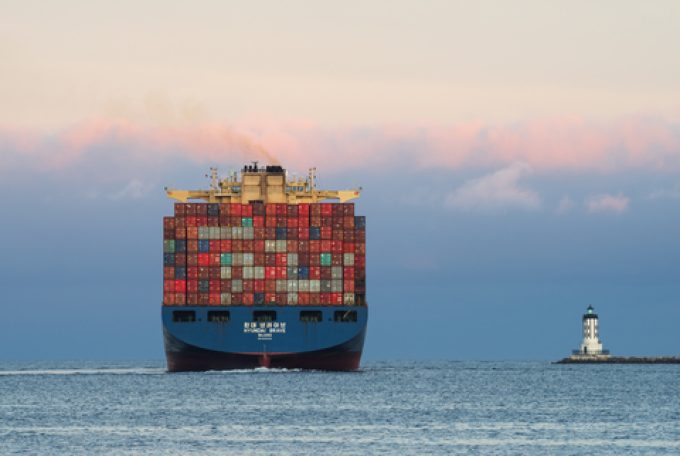‘Customers should be customers of each of our business lines’, says Geodis chief
France’s Geodis is looking to increase its operating income (EBIT) margin from 3.8% to 6% ...
FDX: ABOUT USPS PRIVATISATIONFDX: CCO VIEWFDX: LOWER GUIDANCE FDX: DISRUPTING AIR FREIGHTFDX: FOCUS ON KEY VERTICALFDX: LTL OUTLOOKGXO: NEW LOW LINE: NEW LOW FDX: INDUSTRIAL WOESFDX: HEALTH CHECKFDX: TRADING UPDATEWMT: GREEN WOESFDX: FREIGHT BREAK-UPFDX: WAITING FOR THE SPINHON: BREAK-UP ALLUREDSV: BREACHING SUPPORTVW: BOLT-ON DEALAMZN: TOP PICK
FDX: ABOUT USPS PRIVATISATIONFDX: CCO VIEWFDX: LOWER GUIDANCE FDX: DISRUPTING AIR FREIGHTFDX: FOCUS ON KEY VERTICALFDX: LTL OUTLOOKGXO: NEW LOW LINE: NEW LOW FDX: INDUSTRIAL WOESFDX: HEALTH CHECKFDX: TRADING UPDATEWMT: GREEN WOESFDX: FREIGHT BREAK-UPFDX: WAITING FOR THE SPINHON: BREAK-UP ALLUREDSV: BREACHING SUPPORTVW: BOLT-ON DEALAMZN: TOP PICK

Korea Development Bank (KDB) and Korea Ocean Business Corp (KOBC) on Tuesday increased their stake in South Korea’s flagship box line, HMM, to 67.05%, after both state-controlled financial institutions exchanged KRW660bn ($478.25m) of convertible bonds for more shares.
The conversion increases their holding from 418.79m shares to nearly 551m.
The South Korean state’s elevated interest in HMM coincides with mixed signals on whether it intends to relinquish control over the carrier.
HMM came under the state’s control in 2016, after its main lender KDB engineered a debt-for-equity swap to save the company from the brink.
Last week, minister for oceans and fisheries Kang Do-hyung said the government was continuously seeking a buyer for its shares in HMM and, just days later, Harim Group chairman Kim Hong-kuk said it would make another bid to acquire HMM should it be up for sale again.
Last December, during the government’s first attempt to privatise HMM, Harim and its private equity partner, JKL Partners, were named as the preferred bidder. However, in February, the sale collapsed as both sides could not agree on the terms. Concern about Harim’s smaller financial scale, relative to HMM’s, also attracted opposition from the shipping line’s staff unions.
This week, former minister for oceans and fisheries Kim Young-choon told local media that the longer HMM privatisation was delayed, the more difficult it would be to find a buyer. He added: “If a recession strikes, the privatisation will inevitably be delayed for at least several years, and if that happens, we won’t be able to get the right price.”
Mr Kim was a minister during the administration of President Moon Jae-in, when efforts were made to revive the country’s maritime sector after the bankruptcy and collapse of Hanjin Shipping in 2017. These efforts also resulted in the creation of KOBC.
He continued: “HMM was reborn as a result of government-led restructuring, when the country’s ocean-going container lines were in a crisis due to poor management. From the start, the government intended to privatise HMM once it normalised. Since HMM has been in the black for several years, privatisation is an immediate task.”
An HMM spokesperson told The Loadstar: “HMM doesn’t have the authority to agree or disagree with the conversion of these bonds into shares. Only the major shareholders, KDB and KOBC, have the right to decide to exercise the conversion.”
If the two institutions were to exchange all their remaining convertible bonds for HMM shares, the state’s interest in the company could rise to more than 70%.
Comment on this article